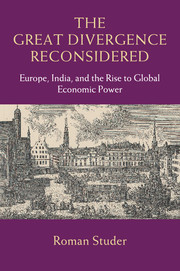1 - Introduction
Published online by Cambridge University Press: 05 February 2015
Summary
THE greatest improvement in the productive powers of labour, and the greater part of the skill, dexterity, and judgment with which it is anywhere directed, or applied, seem to have been the effects of the division of labour.
AS it is the power of exchanging that gives occasion to the division of labour, so the extent of this division must always be limited by the extent of that power, or, in other words, by the extent of the market.
Adam Smith, 1776Market integration and economic development
The idea that the reach of the market is associated through the division of labor with the level of economic development, and that the expansion of markets, that is, the process of market integration, leads to economic growth, has made Adam Smith one of the best known economists of all time. It has also become one of the most popular explanations for economic development since Smith first asserted that connection more than two hundred years ago.
In a nutshell, the logic of the argument runs as follows. When, for some reason, market areas expand and formerly separated markets become part of one single market, their integration turns them into a single operating entity. This generates a territorial expansion of the division of labor, inducing a reallocation of resources within regions or national economies, leading to an increasing division of labor. Through the specialization of skills, this will eventually improve the general productivity and thus induce economic growth.
- Type
- Chapter
- Information
- The Great Divergence ReconsideredEurope, India, and the Rise to Global Economic Power, pp. 1 - 22Publisher: Cambridge University PressPrint publication year: 2015



